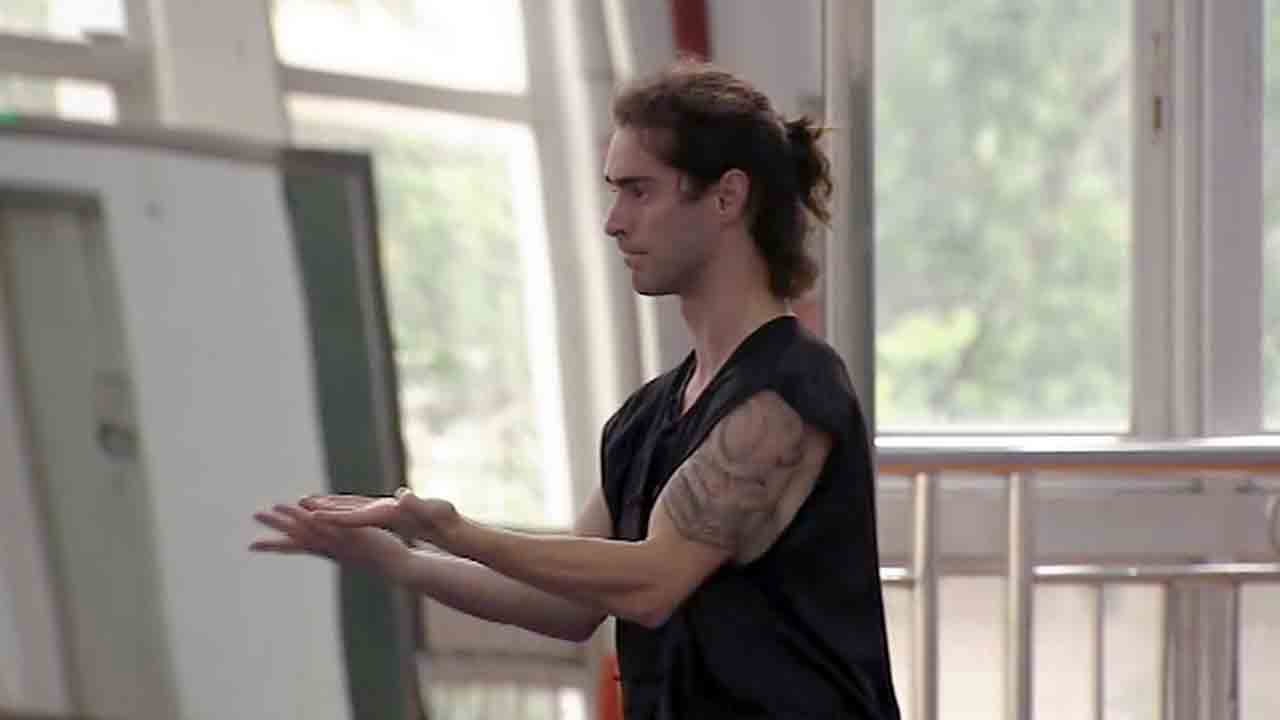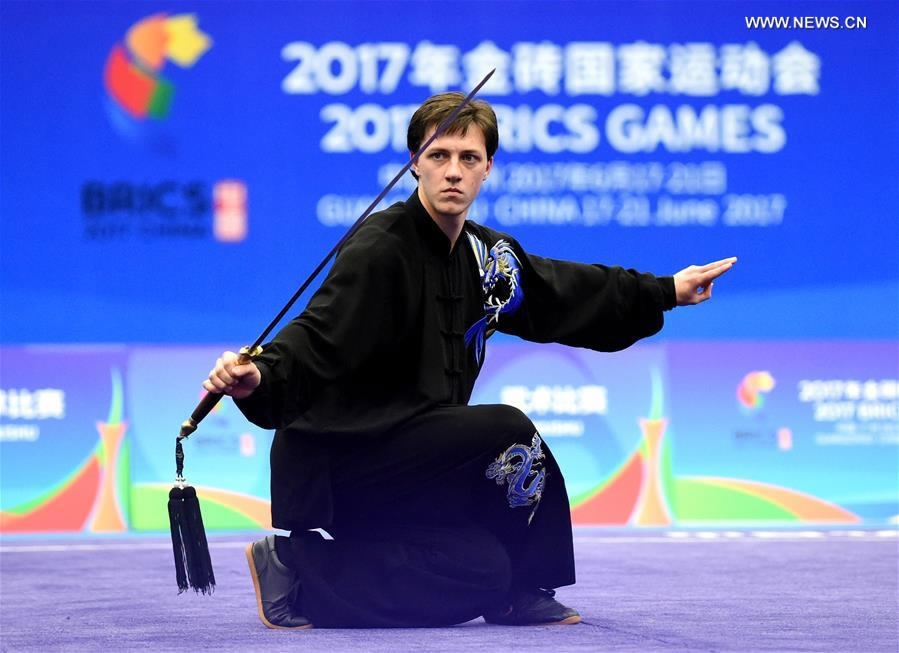
Culture & Sports
17:51, 23-Jun-2017
BRICS Games 2017: South Africa connects with Wushu’s heritage

By CGTN's Mu Dan & Wang Meng
The first ever BRICS Games have come to an end in Guangzhou, south China, but not before a group of athletes and coaches from the country represented by the "S" in BRICS, connected with their sport's heritage.
Wushu originated in the event's host nation China, but has since expanded around the world. And for South Africa's team, no visit to this land would be complete without a road trip to one of their discipline's most sacred venues. The squad was joined there by Damion Jones, who wrapped up their week in Guangzhou.
South Africa's participants in the Wushu competition at the inaugural BRICS Games, nanquan specialist Martin Venski and his teammate, tai chi practitioner Alex Du Plessis, exemplified the wide reach enjoyed by martial arts, since the discipline first began spreading from China, to all corners of the globe.
“I thought of Wushu ten years ago, I always wanted to do the Kung Fu, I mean I used to watch movies, Bruce Lee, Jackie Chan, all of them”, said Martin Venski, adding his father luckily allowed him to study Wushu
And to deepen their understanding of Wushu's roots, the two athletes would head from Guangzhou to nearby Foshan alongside head coach Jurgens Lamprecht and team manager Rutendo Ngara, for a pilgrimage to one of the martial arts' most historic sites – the Ancestral Temple.

Alex Du Plessis of South Africa competes during the all round competition of Men's Taijiquan and Taijijian at 2017 BRICS Games in Guangzhou , June 18, 2017. /CGTN Picture
Alex Du Plessis of South Africa competes during the all round competition of Men's Taijiquan and Taijijian at 2017 BRICS Games in Guangzhou , June 18, 2017. /CGTN Picture
“Coming to Foshan is really interesting. It’s a way Ip Man created WingTsun, being southern stars Kung Fu are home to this area. It’s really fascinating to see the history behind them,” said Alex Du Plessis.
Visiting a shrine filled with exhibits honoring renowned Foshan Kung Fu legends like "Once Upon A Time In China" protagonist Wong Fei-Hung, and international icon Bruce Lee's teacher Ip Man, the group's thoughts also turned to Wushu's present and future.
“Wushu is not 100 percent in the Olympics sheet, so I am hoping to see it within the Olympics as fully recognized sport. And China is certainly pushing very hard for that, and it’s helping a lot,” said South African Wushu coach Jurgens Lamprecht.
Just as Wushu has evolved across many centuries in the past, that process continues with converts from a myriad of nontraditional locales taking to and promulgating this sport steeped in heritage, reinvigorating the pursuit for generations to come.

SITEMAP
Copyright © 2018 CGTN. Beijing ICP prepared NO.16065310-3
Copyright © 2018 CGTN. Beijing ICP prepared NO.16065310-3